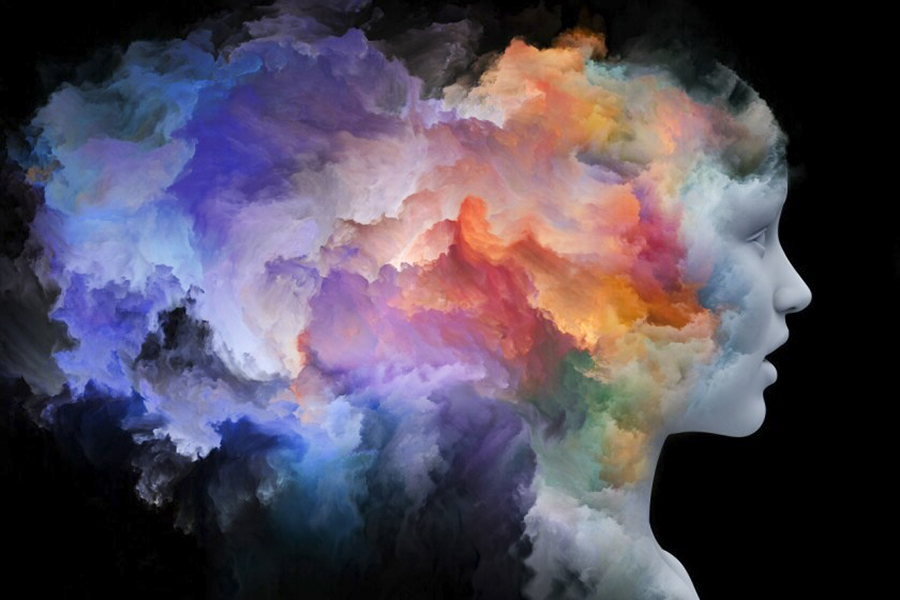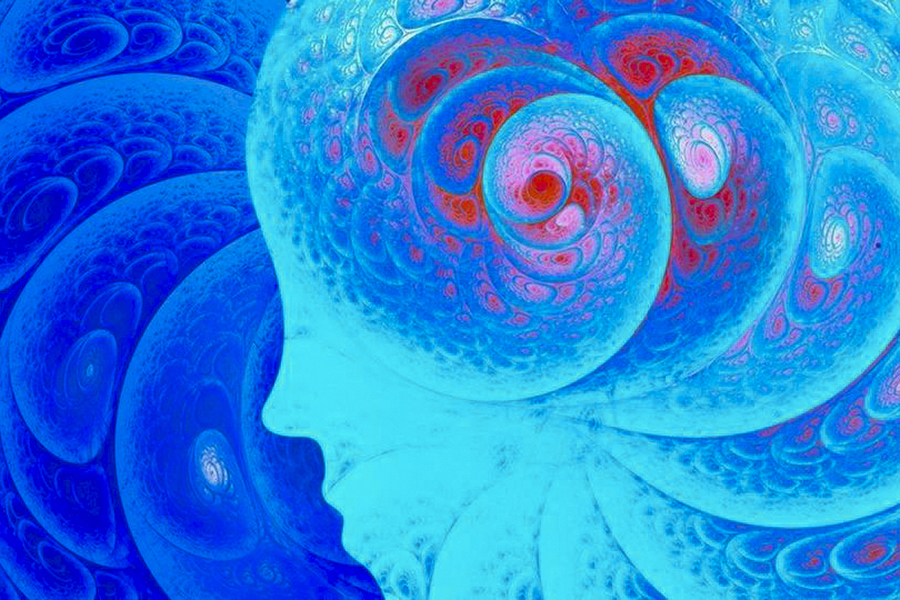Riding the high: CWRU professors research the benefits of psychedelic drugs on mental health
Case Western Reserve University (CWRU) professor of religious studies, and one of the university’s inaugural Distinguished Scholar in the Public Humanities, Deepak Sarma (who identifies as gender fluid) is riding the forefront of research on the use of psychedelic drugs to improve mental health.
Studies at John Hopkins and New York University have demonstrated psychedelic drugs can address many mental disorders—including PTSD, depression, anxiety, and even addiction.
Psychedelic drugs such as LSD (acid), Psilocybin (mushrooms), DMT, (mescaline from the peyote cactus), and MDMA (ecstasy/Molly) are often used illegally as recreational street drugs for their psychedelic effects. But research has found that, in controlled settings, these drugs can be helpful in treating depression or anxiety disorders in those who have tried more traditional treatments that have failed to bring relief.
The Johns Hopkins and NYU studies piqued Sarma’s curiosity, who has long had an interest in psychedelics’ medical potential
“Once I heard about these studies, says Sarma, “I started exploring [psychedelics] again and realized there are some important things missing from [the studies].”
Sarma, along with Lee Hoffer, a colleague working in CWRU’s anthropology department, are conducting their own study on the non-allopathic use of therapeutic psychedelics through a 2022 Expanding Horizons Initiative grant Hoffer received from CWRU.
Sarma and Hoffer are interviewing 35 participants who used psychedelics within the past six months. The interviews have revealed significant improvements in an array of mental health markers and Sarma says many participants have even been able to stop their antidepressants.
 The experience of a guided session is not all ecstatic and can inclued “the good, bad, and the ugly - your brain will release whatever it needs to release“Several people that we interviewed [report] that their mental health improved significantly as a result of the use of psychedelics,” he says. “One even reported that they relied less on prescribed [antidepressants] as a result.”
The experience of a guided session is not all ecstatic and can inclued “the good, bad, and the ugly - your brain will release whatever it needs to release“Several people that we interviewed [report] that their mental health improved significantly as a result of the use of psychedelics,” he says. “One even reported that they relied less on prescribed [antidepressants] as a result.”
Participants, who each suffer from a variety of anxiety issues, have taken one of five psychedelics (LSD, Psilocybin, DMT, Mescaline, and MDMA) at least once every six months during the study.
“Psychedelics offer a completely different way to address mental health issues, and they can help bring issues and complexities that give rise to depression or PTSD to the forefront,” argues Sarma. “People are able to work through challenges very quickly or in a few sessions, while [with] talk therapy, such progress may take months, if not years."
Sarma says they are excited about the promising possibilities that psychedelics used in non-allopathic (unconventional) settings could address mental health issues and this study could potentially be a revolutionary solution for mental conditions that have been historically challenging to treat.
Sarma says some psychologists have compared the potential addiction to psychedelics with the potential addiction to SSRIs (antidepressants).
“Psychedelics are a completely different animal,” Sarma says, “The usage is typically once every few months, rather than every day—sort of like tuning up your car. SSRIs treat the symptoms and psilocybin is doing something completely different, and without the potential side effects that may come with an SSRI.”
A newer trend is to microdose psychedelics, particularly Psilocybin (not a part of Sarma’s study), in which a small amount is taken regularly to reduce anxiety and depression and attempt to improve creativity, boost physical energy levels, and promote emotional balance.
Religion meets science
It can be seen as a bit ironic that as a religion professor, Sarma (who is also a long-time Grateful Dead fan) is conducting a rigorous scientific study of brain medicine—and how examining those two vastly different perspectives mesh.
In fact, Sarma says being a Deadhead sparked their interest in the scientific health possibilities of psychedelics. Additionally, Sarma attributes books such as Aldous Huxley’s “Doors of Perception” to sparking their curiosity and interest in psychedelics as a therapeutic process.
It can be seen as a bit ironic that Sarma, also a long-time Grateful Dead fan, is conducting a rigorous scientific study of brain medicine—and how examining those two vastly different perspectives meshBefore becoming a professor, Sarma’s interest in Indian philosophy and Hinduism was triggered by exposure to psychedelics. The combination of Indian philosophy and psychedelics helped answer Sarma’s deep existential questions.
“I have been deeply immersed in the question of whether there is a reality independently of one’s mind,” Sarma explains.
However, Sarma had to keep their views underground until becoming a full professor at CWRU in 2004 and felt safe to “come out as someone who is interested in psychedelics.”
Sarma says that ever since Nixon’s War on Drugs years, when LSD was demonized and put on the Class 1 drug list, information declaring these drugs as dangerous has permeated the news, and legitimate studies on the use of psychedelics have often been stigmatized. But Sarma says that’s now changing.
“Now it is becoming more acceptable, and scholars are more free to pursue research in the area,” they say.
Sarma notes that for centuries, some psychedelics, such as Peyote and Ayahuasca, have been used in indigenous religious ceremonies. In current times Sarma says, “Native American churches use them as a therapy to address the history of colonization and oppression.”
Sarma teaches a class. “Drugs, Mysticism and Mystical Experiences,” which examines case studies and research exploring the fact that while many religious traditions prohibit the use of alcohol, tobacco, or other drugs, many other religions advocate the use of substances to achieve desired cognitive states for spiritual or even medical/ therapeutic purposes.
One participant of Sarma’s psychedelic study described how psychedelics “opened his mind in a real way by visualizing his issues as barrels lined up on a cliff and kicking them off one by one.”
Another participant said the use of psilocybin negates the need for six months of talk therapy, says Sarma, while a third subject microdosed psilocybin for a few weeks to offset emotions associated with loss and had a powerful and healing experience.
Proper Guidance
Sarma stresses that it is crucial to use psychedelics under the care and guidance of a trained guide (currently, as these drugs are not legal in Ohio, guides can only be found through underground channels) or medical professionals. They will know how to use setting and intention-cornerstones of this work—to maximize positive and safe experiences.
 Sarma stresses that it is crucial to use psychedelics under the care and guidance of a trained guideGuides are credentialed in different ways, but some must also go take the psychedelics with a “clear idea of what you want to get out of the session,” Sarma says. “A guide will work with you before the journey to clear the mind so you can access that. Perhaps that takes the form of sitting in deep reflection or meditation or it could be through journaling.”
Sarma stresses that it is crucial to use psychedelics under the care and guidance of a trained guideGuides are credentialed in different ways, but some must also go take the psychedelics with a “clear idea of what you want to get out of the session,” Sarma says. “A guide will work with you before the journey to clear the mind so you can access that. Perhaps that takes the form of sitting in deep reflection or meditation or it could be through journaling.”
Unlike what some may think, the experience of a guided session is not all ecstatic, says Sarma explaining a typical experience has “the good, bad, and the ugly, and that is ok. It is all important information, and your brain will release whatever it needs to release.”
That said you want to go on the journey in a good frame of mind. While emphasizing the potential of psychedelics as medicine, Sarma returns to their work as a researcher of religious and mystical experiences.
“The euphoric glow you can inhabit after an experience with MDMA when you can talk with ease about your marital issues without fear for the first time, or if you were diagnosed with cancer and completely let go of your fear of death” is powerful Sarma says, likening such experiences to someone’s first time seeing Yosemite’s El Capitan.
“I remember the first time I saw it—it’s stunning,” they recall. “It puts you in relation with all the things in the universe in a completely different way when you see this massive stone.”You are in a state of awe, amazement, and wonder leaving you speechless.
“If you allow El Capitan to transform you, you become a different person,” Sarma continues. “You see the universe as much larger than yourself. Hopefully, that moment persists and, in the afterglow, you are forever remembering that experience and it orients you.”




